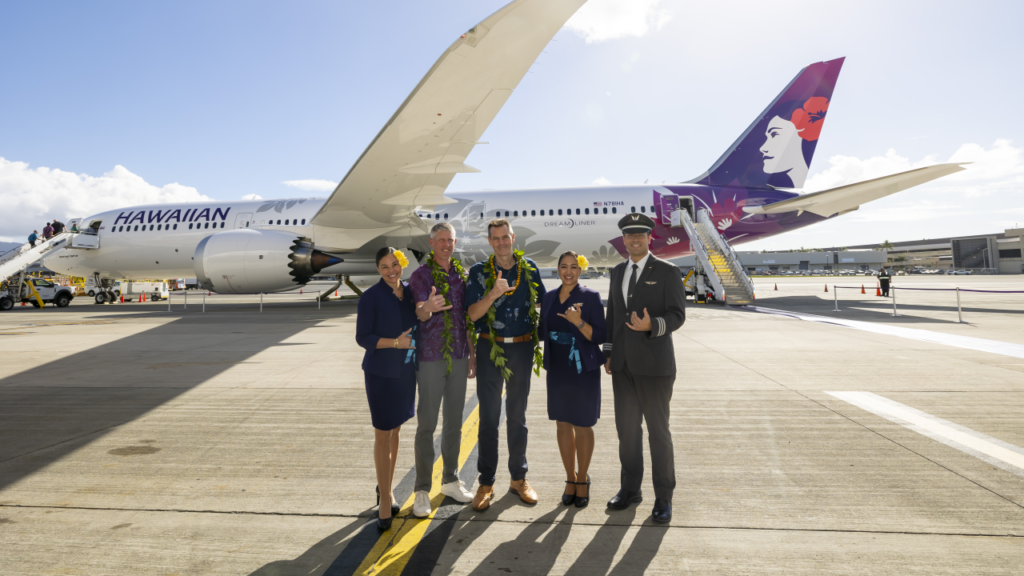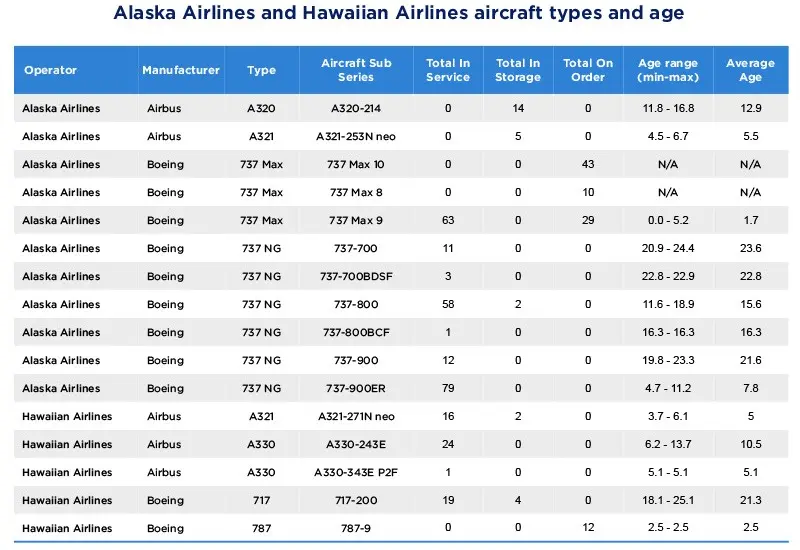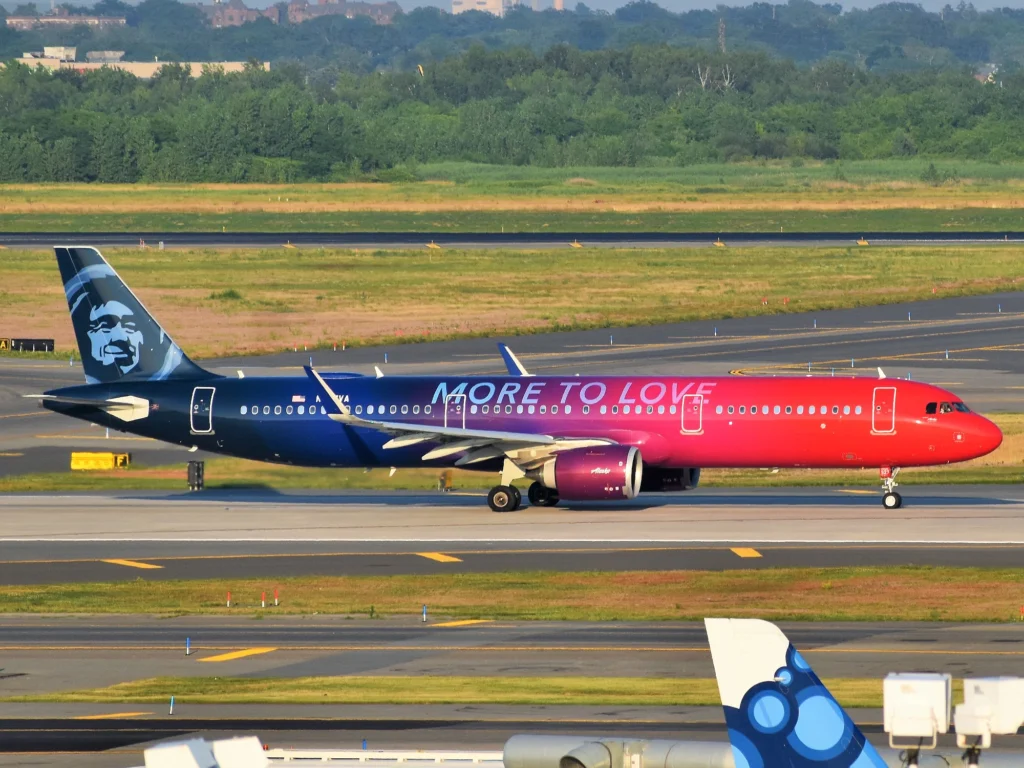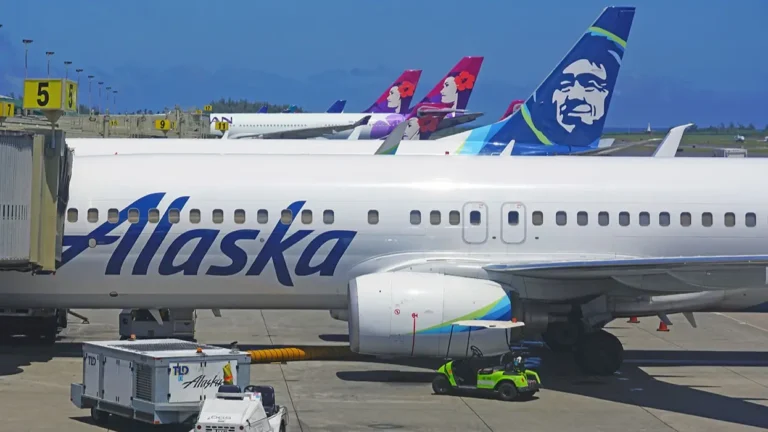HONOLULU- Hawaiian Airlines (HA) faces a pivotal moment as the Department of Justice (DOJ) prepares to announce its decision on the proposed merger with Alaska Airlines (AS) this week.
The airline’s stock price has mirrored the uncertainty, plummeting nearly 20% before rebounding over 20% in the past five days.

Alaska Hawaiian Merger Decision Soon
The merger’s outcome will significantly impact Hawaii’s air travel landscape. Supporters argue it could enhance route networks, competitive pricing, and service quality between the U.S. mainland and Hawaii. Critics, however, warn of potential monopolistic behavior and reduced competition on certain routes.
The DOJ’s decision carries far-reaching implications for consumers, the travel industry, and Hawaii’s economy. If approved, the merger could reshape airline market dynamics in the region, potentially offering more comprehensive travel options but also raising concerns about market concentration.
The volatile stock performance reflects investors’ shifting sentiments and the high stakes involved. The dramatic price swings underscore the merger’s perceived importance to Hawaiian Airlines’ future and the broader aviation sector.
This development occurs against the backdrop of Southwest Airlines (WN)’ ongoing challenges in the Hawaiian market, adding another layer of complexity to the regional airline industry’s competitive landscape, beat of Hawaii reported.

How DOJ Decision will Impact Travelers?
The impending Department of Justice (DOJ) decision on the Hawaiian Airlines-Alaska Airlines merger holds significant implications for travelers, investors, and the aviation industry. A successful merger could introduce new route options and potentially lower prices in certain markets as the combined entity streamlines operations. Conversely, a rejection might lead to uncertainty, affecting flight availability and pricing across airlines serving Hawaii.
Investors face a crucial period as Hawaiian Airlines’ stock experiences sharp fluctuations. The recent stock surge suggests optimism about the merger’s approval, but risks remain high with continued volatility expected as the decision nears.
Hawaiian Airlines recently refinanced over one billion dollars of debt, exchanging 5.75% senior secured notes due in 2026 for 11% notes due in 2029. This move raises questions about the airline’s ability to operate independently without the Alaska Airlines deal.
The merger’s approval may require route adjustments, as the airlines currently overlap on a dozen routes between Hawaii and the Pacific Northwest and California. Previous airline mergers approved by the DOJ have included similar conditions.

The potential merger raises questions about future fleet utilization. Alaska’s over 200 Boeing 737 planes would combine with Hawaiian’s mix of 44 mainland narrow-body and widebody aircraft, likely leading to significant changes in fleet deployment over time.

Serving Hawaii Since 2007
The proposed merger between Hawaiian Airlines and Alaska Airlines marks a significant shift in Hawaii’s aviation landscape, tracing its roots back to Alaska’s entry into the Hawaiian market in October 2007. Alaska initially launched routes from Seattle to Honolulu and Lihue, followed by an Anchorage-Honolulu service in December of the same year.
Alaska’s arrival coincided with a tumultuous period in Hawaiian aviation. The subsequent collapse of ATA and Aloha Airlines within six months led to a nearly 12% reduction in seat capacity between the mainland/Alaska and Hawaii. In this context, Alaska’s expansion was viewed as a crucial development for Hawaii’s tourism-dependent economy.
The evolution of market share since then reveals significant shifts. Hawaiian Airlines experienced growth following the failure of its competitors, while American Airlines began to reduce its presence. Alaska Airlines emerged as the primary new entrant, playing a vital role in maintaining connectivity and competition until Southwest Airlines entered the market over a decade later.
Alaska’s consistent expansion in Hawaii has positioned it as a key player in the region’s air travel market. The airline’s reputation for operational excellence, often ranking among the top three North American carriers, has further solidified its importance to Hawaii’s tourism industry.
The Department of Justice’s imminent decision on the Hawaiian Airlines-Alaska Airlines merger has created palpable tension across Hawaii’s travel industry, stock market, and airline sector. This pivotal moment for the 95-year-old Hawaiian Airlines will shape the future of air travel in the region.
The merger’s outcome will influence route networks, pricing strategies, and service quality between the U.S. mainland and Hawaii.
What are your thoughts on Alaska and Hawaiian Merger? Let us know in the comments.
Join us on Telegram Group for the Latest Aviation Updates. Subsequently, follow us on Google News.

